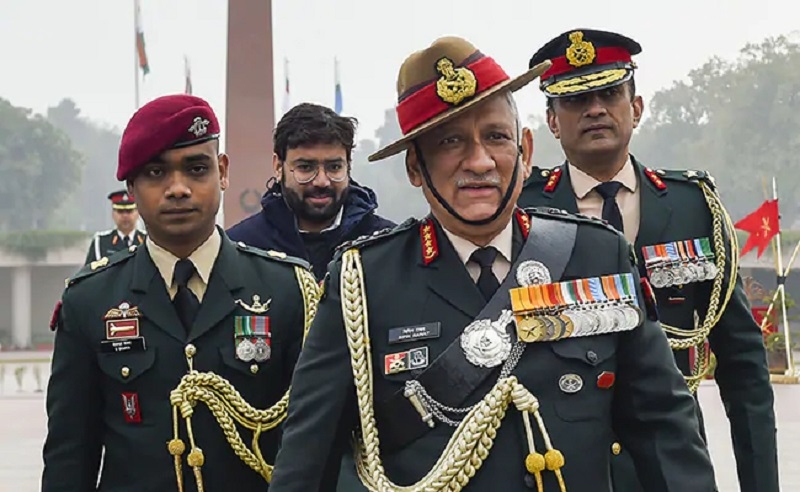NEW CHAPTER
| Date :01-Jan-2020 |

THE appointment of General Bipin Rawat as the first-ever Chief of Defence Staff (CDS), opens a new chapter in India’s Defence and Security management. It is expected to add an extra pep to the approach to Defence and Security issues. It is expected also to add a far greater sense of assertion in India’s overall stance vis-a-vis its military footprint in the region. This much-delayed appointment is likely to pep up India’s response to Security challenges to proactive levels and reduce the country’s response to a near-real-time zone. General Bipin Rawat is the most appropriate choice for the coveted pioneering position not just because he served in the Army chief’s position with distinction, but also because of his fine comprehension of geo-political issues vis-a-vis military matters.
During his tenure as the Chief of the Army Staff (COAS), India saw many tense moments when the enemy behaved erratically and brazenly, needing a tough response from New Delhi. General Rawat proved more than equal to the task when he headed one of the best professional Armies in the world. His ascendence as the first CDS in India was almost a given, which did happen on the ground, making the Defence and political communities as well as the larger Indian society happy. Technically, General Rawat -- or the Chief of Defence Staff -- will serve as advisor to the Minister of Defence on all military matters.
Actually, however, it is quite likely that the Government would expect him to play a proactive role even within the framework of his stated mandate. In the continuously evolving Security situation in the region and the world, India will have a greater role to play, which was evident from the tremendously powerful diplomatic thrust Prime Minister Mr. Narendra Modi has given to India’s external affairs.
The manner in which he has leveraged the military might of the nation during his diplomatic forays around the world also indicated what kind of Security perceptions the leadership harboured during the past five years since ascendence of Mr. Modi as Prime Minister. In this scenario, General Rawat will have a proactive role to play as CDS. Factually, he had already been playing more or less a similar role as COAS, having been the senior-most among the Services chiefs.
Those with some insider insights knew that General Rawat and Dr. S. Jaishankar worked closely together on the task of evolving some fine nuances of India’s foreign policy even before Dr. Jaishankar moved to political arena and assumed the position of Minister of External Affairs (MEA). That team-work will make a greater sense from now onwards. Tackling Pakistan is, of course, India’s important geo-political engagement. But more important than that will be how India will tackle the Chinese challenge. For, the Chinese style of foreign affairs management is much more nuanced and much more subtle than that of Pakistan. It is in that zone that India will be needed to play a cautious yet confident role. In that endeavour, General Rawat’s contribution will have a great importance.
While the Pakistanis are brazen and open about what they do, rarely trying to conceal their agenda, the Chinese are much smarter and much more effective silent operators, daring India at every step of the way. General Rawat’s role in India’s collective response to China’s diplomatic, military and trade arenas will be critical. The terms of reference of General Rawat’s job as CDS may not state many things, but the Government knows what to expect of the man and his new position while dealing with the geo-political challenges the nation will have to tackle in the next some years. By creating the position of Chief of Defence Staff, India has moved on from its age-old style of managing Defence and Security issues. It will now boast of a far more dynamic approach to critical issues with the CDS in the collective leadership team.